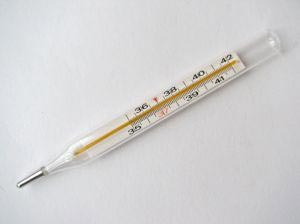Can allergies cause a fever? This is one question that many people often ask. When people suffer from allergies, they are aware of the different symptoms that are caused because of it. However, many people become a little scared when a low-grade fever develops and starts to believe that a cold will ensue.
So, can allergy cause a fever or are you, in fact, catching a virus? To start, it’s important to understand the variety of symptoms that can occur when suffering from allergies.

Can Allergies Cause a Fever?
First off, the body goes through a series of harmful effects depending on how serious the allergy attack is. Sometimes, these symptoms can last for days and often will cause a low grade fever. If you think about it, you suffer from nasal congestion, sneezing, and runny nose on any given day. But, a more severe case includes itchy and puffy eyes, a dry cough, and even a migraine or headache.
Of course, the feeling of fatigue and a lack of sleep will immediately lower your immunity as well. Once this occurs, your body temperature begins to rise as it tries to strengthen the immune system to fight the allergens causing the decrease. And because of this, you can suffer from a mild fever ranging no more than 101 degrees. If it reaches higher than this, then you may have contracted a virus that has increased your allergies and a visit to your doctor is required for treatment.

However, there are other things that cause a fever due to allergies. If the problem persists, you can develop a sinus infection, hay fever, and even Sinusitis. All of these inflame the nasal passage, airways, and increase your body’s effort to fight the infection.
Due to this, again, your body temperature will rise causing a low fever. It’s pretty obvious that you’ve been wondering can allergies cause a fever? And the simple answer is yes. But, it’s important to document your symptoms and be aware of anything out of the ordinary concerning your allergies. If there is, make sure to visit your doctor immediately.
Read also home remedies for pollen allergies.





Leave a Reply